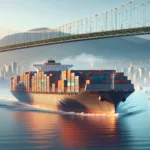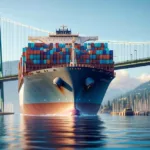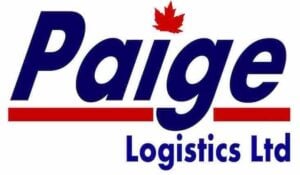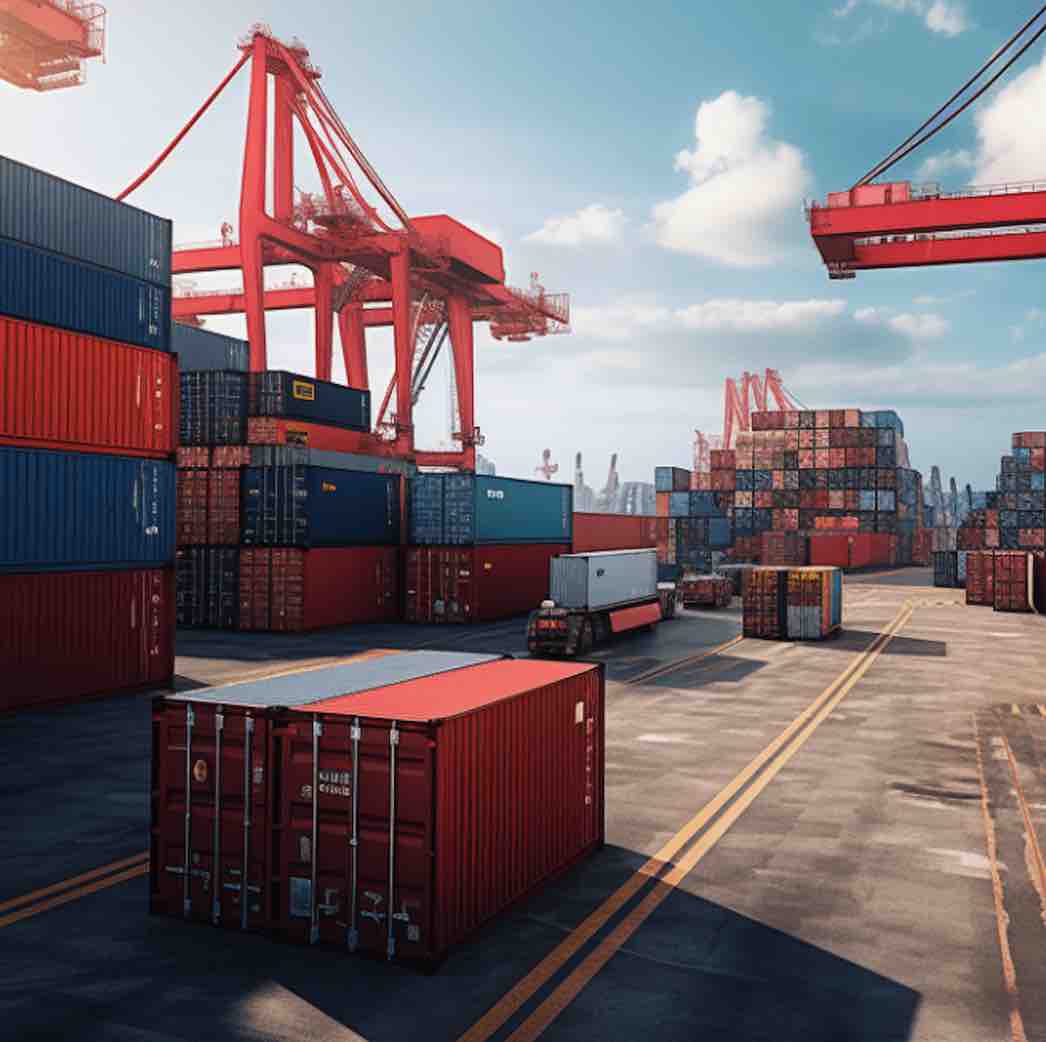EXW Incoterms
The Comprehensive Guide to EXW (Ex Works) in International Trade
Awarded #1 in Shipping
click on badge
Unpacking EXW (Ex Works)
Hello, global entrepreneurs and international trade enthusiasts! Today, we’re going to dive deep into the world of EXW (Ex Works), a crucial term in the lexicon of international shipping and logistics.
Understanding EXW can significantly impact your business operations and global trade strategies. So, let’s embark on this journey to demystify EXW and turn you into an expert in navigating these waters.
International Shipping Services
Mastering EXW (Ex Works): The Ultimate Guide to Smart Shipping
EXW, or “Ex Works,” might seem like a small cog in the giant wheel of shipping terms, but its impact is substantial. It’s one of the many Incoterms – those standardized international trade terms set by the International Chamber of Commerce. These terms are the unsung heroes that clarify the roles, responsibilities, and risks for buyers and sellers in international trade.
In the realm of EXW, the seller plays a minimal role. Their primary responsibility is to ensure that your goods are ready for collection at their premises, which could be a factory, warehouse, or any designated location. Once the goods are prepared, the baton is passed to you, the buyer, to take over the entire process.
What is EXW (Ex Works)?
EXW, short for “Ex Works,” is like the DIY of shipping terms. It’s part of the Incoterms, those nifty rules set by the International Chamber of Commerce that define who does what in international trade. In the EXW world, the seller’s job is pretty straightforward – they just need to have your goods ready for pickup at their place, be it a factory, warehouse, or secret lair. Once the goods are ready, it’s all on you, the buyer, to handle the rest.
EXW, short for “Ex Works,” is an Incoterm (International Commercial Term) used in international trade to define the responsibilities of buyers and sellers in shipping transactions. Under the EXW term, the seller’s responsibilities are minimal, making it one of the simplest shipping terms for the seller.
The difference between FOB (Free On Board) and EXW (Ex Works) costs lies in the distribution of responsibilities and costs between the buyer and the seller in an international trade transaction. These terms are part of the Incoterms (International Commercial Terms) established by the International Chamber of Commerce.
FOB (Free On Board) Costs:
Seller’s Responsibilities and Costs:
- The seller is responsible for all costs and risks until the goods are loaded onto a vessel at the port of shipment.
- This includes production costs, internal transport, loading charges at the port, and customs clearance charges for export.
- The seller must also ensure the goods are properly packaged and labeled for sea transport.
Buyer’s Responsibilities and Costs:
- Once the goods are loaded onto the ship, the buyer assumes responsibility.
- The buyer handles all costs related to ocean freight, insurance, unloading at the destination port, import customs clearance, and further transportation to the final destination.
EXW (Ex Works) Costs:
Seller’s Responsibilities and Costs:
- Under EXW, the seller’s responsibilities and costs are minimal.
- The seller only needs to make the goods available at their premises (factory, warehouse, etc.).
- The seller does not bear the costs of loading the goods onto a vehicle or any shipping costs.
Buyer’s Responsibilities and Costs:
- The buyer assumes all costs and risks right from the seller’s premises.
- This includes loading charges, transportation to the port, ocean freight, insurance, unloading at the destination, import customs clearance, and transport to the final destination.
- The buyer also handles all export procedures and costs.
Key Differences:
- Risk Transfer: In FOB, risk transfers to the buyer when the goods are loaded onto the ship at the port of shipment. In EXW, the risk transfers to the buyer as soon as the goods are made available at the seller’s premises.
- Scope of Seller’s Responsibilities: The seller has more responsibilities in FOB, including getting the goods to the port and loading them onto the vessel. In EXW, the seller’s responsibilities are limited to making the goods available at their location.
- Cost Implications: FOB can be more cost-effective for the buyer, especially if the buyer does not have the resources or expertise to handle the complete logistics from the seller’s premises. EXW can lead to higher costs for the buyer, as they are responsible for the entire shipping process from the seller’s location.
In summary, FOB is generally more favorable for buyers, especially in international shipping, as it reduces the logistics burden and associated risks. EXW, while simpler for the seller, can pose additional challenges and costs for the buyer, especially if they are not well-versed in handling export logistics and procedures.
DAP (Delivered At Place) and EXW (Ex Works) are both Incoterms (International Commercial Terms) used in international trade, but they differ significantly in terms of the distribution of responsibilities, risks, and costs between the buyer and the seller.
DAP (Delivered At Place):
Seller’s Responsibilities and Costs:
- Under DAP, the seller is responsible for delivering the goods to a named destination specified by the buyer.
- The seller bears all risks and costs associated with transporting the goods to the destination, including export clearance, shipping, and transit costs.
- The seller is not responsible for unloading the goods at the final destination or for import clearance.
Buyer’s Responsibilities and Costs:
- The buyer’s responsibility begins once the goods arrive at the named destination.
- The buyer is responsible for unloading the goods and handling import customs clearance, including payment of import duties, taxes, and any other charges related to importing the goods into the destination country.
EXW (Ex Works):
Seller’s Responsibilities and Costs:
- In EXW, the seller’s responsibilities are minimal. The seller only needs to make the goods available at their premises (factory, warehouse, etc.).
- The seller does not bear the costs of loading the goods onto a vehicle or any shipping costs.
- Export clearance and other formalities are the buyer’s responsibility.
Buyer’s Responsibilities and Costs:
- The buyer assumes all costs and risks right from the seller’s premises.
- This includes loading charges, transportation to the port, shipping, insurance, unloading at the destination, import customs clearance, and transport to the final destination.
- The buyer handles all export and import procedures and costs.
Key Differences:
- Distribution of Responsibilities: In DAP, the seller is responsible for delivering the goods all the way to the named destination, bearing the associated risks and costs. In EXW, the seller’s responsibility ends once the goods are made available at their premises, with the buyer taking over all subsequent risks and costs.
- Transport and Logistics: DAP requires the seller to arrange and pay for transport to the specified destination, while in EXW, the buyer is responsible for arranging and paying for all transportation from the seller’s location.
- Customs Clearance: In DAP, the seller handles export customs clearance, but the buyer is responsible for import customs clearance. In EXW, the buyer is responsible for both export and import customs clearance.
In summary, DAP places more responsibility on the seller to deliver the goods to a specified destination, making it more convenient for the buyer, especially in international trade. EXW, on the other hand, minimizes the seller’s obligations and costs but requires the buyer to manage the entire shipping process, including export and import formalities.
EXW (Ex Works) and FCA (Free Carrier) are both Incoterms (International Commercial Terms) used in international trade, but they differ in terms of the allocation of responsibilities, risks, and costs between the buyer and the seller.
EXW (Ex Works):
Seller’s Responsibilities and Costs:
- Under EXW, the seller’s responsibilities are minimal. The seller is only required to make the goods available for pickup at their premises (factory, warehouse, etc.).
- The seller does not need to load the goods onto the buyer’s transport vehicle or handle any export formalities.
- All risks and costs associated with transporting the goods from the seller’s premises are borne by the buyer.
Buyer’s Responsibilities and Costs:
- The buyer assumes all responsibilities and costs from the seller’s premises.
- This includes loading the goods, arranging and paying for all transportation, handling export customs clearance, and bearing all risks during transit.
- The buyer is responsible for the entire shipping process, including transport to the final destination.
FCA (Free Carrier):
Seller’s Responsibilities and Costs:
- In FCA, the seller is responsible for delivering the goods to a pre-agreed location, which could be the seller’s premises, a port, or another specified place.
- The seller must load the goods onto the buyer’s chosen mode of transport if the delivery location is the seller’s premises. If the delivery location is elsewhere, the seller is responsible for transporting the goods to that location but not for loading them.
- The seller handles export customs clearance, making FCA more convenient for the buyer in terms of export formalities.
Buyer’s Responsibilities and Costs:
- Once the goods have been delivered to the agreed location and loaded (if at the seller’s premises), the buyer assumes responsibility for all risks and costs.
- The buyer arranges further transportation from the agreed delivery point to the final destination.
- The buyer handles import customs clearance and any associated costs.
Key Differences:
- Point of Risk Transfer: In EXW, the risk transfers to the buyer as soon as the goods are made available at the seller’s premises. In FCA, the risk transfers when the goods are delivered to the agreed location and, if applicable, loaded onto the buyer’s transport.
- Loading of Goods: Under EXW, the buyer is responsible for loading the goods at the seller’s premises. In FCA, if the delivery location is the seller’s premises, the seller must load the goods onto the buyer’s transport.
- Export Formalities: In EXW, the buyer is responsible for export customs clearance, which can be challenging in some countries. FCA requires the seller to handle export customs clearance, making it more straightforward for the buyer.
In summary, FCA offers a more balanced distribution of responsibilities, with the seller playing a more active role in the initial stages of shipping, including handling export formalities. EXW minimizes the seller’s obligations but places a greater logistical and administrative burden on the buyer, especially in terms of export procedures.
Certainly! Here’s an example to illustrate how Ex Works (EXW) operates in a real-world international trade scenario:
Scenario: Electronics Manufacturer Purchasing Components
Context: Imagine you are the owner of an semiconductor manufacturing company based in Canada. You decide to purchase specialized microchips from a supplier in Taiwan.
EXW Agreement:
Contract Signing:
- You and the Taiwanese supplier agree on an EXW purchase. The contract states that the microchips will be ready for pickup at the supplier’s warehouse in Seoul.
Preparation by the Supplier:
- The Taiwanese supplier prepares the order, ensuring the microchips are packaged and ready for international shipping. They store the packaged goods at their warehouse.
Notification of Goods Readiness:
- Once the microchips are ready, the supplier notifies you that the goods are available for pickup at their warehouse, as per the EXW agreement.
Your Responsibilities as the Buyer:
Arranging Transportation:
- You contact a logistics company to arrange the collection of the microchips from the supplier’s warehouse in Taipai and transport them to Canada.
Handling Export Formalities:
- Since the agreement is EXW, you are responsible for managing the export process. This includes hiring a local agent in Taiwan to handle export customs clearance and any necessary documentation.
Shipping and Insurance:
- You decide on the mode of transport (air or sea freight) and pay for the shipping costs. You also opt to purchase insurance to cover the microchips during transit.
Import into Germany:
- Upon arrival in Canada, you handle the import customs clearance, including paying any import duties and taxes. You then arrange for the final delivery from the port to your manufacturing facility.
Conclusion:
In this EXW scenario, your role as the buyer involves significant coordination and management of the entire shipping process, from the point of collection in Seoul to the final destination in Canada.
The Taiwan supplier’s responsibility ends once they make the microchips available at their warehouse, transferring all subsequent risks and obligations to you.
Scenario: Electronics Manufacturer Purchasing Components
Context: Imagine you are the owner of an semiconductor manufacturing company based in Canada. You decide to purchase specialized microchips from a supplier in Taiwan.
EXW Agreement:
Contract Signing:
- You and the Taiwanese supplier agree on an EXW purchase. The contract states that the microchips will be ready for pickup at the supplier’s warehouse in Seoul.
Preparation by the Supplier:
- The Taiwanese supplier prepares the order, ensuring the microchips are packaged and ready for international shipping. They store the packaged goods at their warehouse.
Notification of Goods Readiness:
- Once the microchips are ready, the supplier notifies you that the goods are available for pickup at their warehouse, as per the EXW agreement.
Your Responsibilities as the Buyer:
Arranging Transportation:
- You contact a logistics company to arrange the collection of the microchips from the supplier’s warehouse in Taipai and transport them to Canada.
Handling Export Formalities:
- Since the agreement is EXW, you are responsible for managing the export process. This includes hiring a local agent in Taiwan to handle export customs clearance and any necessary documentation.
Shipping and Insurance:
- You decide on the mode of transport (air or sea freight) and pay for the shipping costs. You also opt to purchase insurance to cover the microchips during transit.
Import into Germany:
- Upon arrival in Canada, you handle the import customs clearance, including paying any import duties and taxes. You then arrange for the final delivery from the port to your manufacturing facility.
Conclusion:
In this EXW scenario, your role as the buyer involves significant coordination and management of the entire shipping process, from the point of collection in Seoul to the final destination in Canada.
The Taiwan supplier’s responsibility ends once they make the microchips available at their warehouse, transferring all subsequent risks and obligations to you.
EXW (Ex Works) is an Incoterm that, while placing most of the responsibility on the buyer, offers several benefits, particularly for the seller (shipper). Here are some of the key advantages:
Benefits for the Seller:
Minimal Logistics Responsibilities: The seller’s responsibilities under EXW are limited to preparing the goods for pickup at their premises. This simplicity reduces the logistical burden, making it easier for sellers who may not have extensive experience or resources for international shipping.
Reduced Shipping Costs: Since the buyer handles all transportation costs from the seller’s premises, including loading and onward transport, the seller avoids these expenses. This can be particularly beneficial for small or medium-sized businesses with limited shipping budgets.
Lower Risk: The risk of loss or damage to the goods passes to the buyer as soon as the goods are made available for pickup. This reduces the seller’s risk exposure, as they are not responsible for any incidents that may occur during transportation.
Simplified Export Process: In EXW, the buyer is responsible for export clearance and formalities. This means the seller does not have to deal with the complexities of export documentation and customs procedures, which can be advantageous if they are not familiar with these processes.
Focus on Core Operations: With fewer obligations related to shipping and export, the seller can concentrate more on their core business activities, such as production, quality control, and domestic market operations.
Benefits for the Buyer:
Complete Control Over Shipping: The buyer has full control over the entire shipping process, including the choice of transport methods, routes, and logistics providers. This can be advantageous for buyers with specific shipping preferences or those looking to consolidate shipments from multiple sellers.
Potential Cost Savings: Experienced buyers with established logistics networks might be able to negotiate better shipping rates and find more cost-effective transport solutions than what the seller might offer.
Flexibility in Timing: The buyer can schedule the pickup and shipping according to their own timeline and logistical requirements, allowing for better integration with their supply chain operations.
Customs and Compliance Management: Buyers with specific knowledge of the import country’s customs regulations can manage the process more effectively, ensuring compliance and potentially avoiding delays.
General Benefits:
Simplicity in Contracts: EXW is one of the simplest Incoterms in terms of contractual obligations, making it easy to understand and implement, especially for straightforward sales transactions.
Suitability for Domestic Purchases: EXW can be particularly suitable for domestic transactions where the buyer prefers to take charge of the entire transport process.
In summary, EXW offers benefits like reduced responsibilities and risks for sellers and greater control and potential cost savings for buyers. However, it’s important for both parties to consider their capabilities and resources before opting for EXW, as it requires the buyer to have a good understanding and management of the logistics and customs processes involved in international shipping.
Choosing between EXW (Ex Works) and FOB (Free On Board) depends on various factors, including your experience with international shipping, your capacity to handle logistics and customs procedures, and your risk tolerance. Here’s a comparison to help you decide:
EXW (Ex Works):
- Seller’s Responsibilities: Minimal. The seller makes the goods available at their premises.
- Buyer’s Responsibilities: Extensive. The buyer handles all transportation, including pickup, freight, insurance, and customs clearance.
- Risk Transfer: Occurs when the buyer collects the goods from the seller’s premises.
- Best Suited For:
- Buyers with established logistics networks.
- Buyers who want full control over the shipping process.
- Situations where the buyer is consolidating multiple shipments.
- Domestic purchases or when the buyer is familiar with the export country’s logistics and customs procedures.
FOB (Free On Board):
- Seller’s Responsibilities: More involved. The seller is responsible for getting the goods to the port of shipment and loading them onto the vessel.
- Buyer’s Responsibilities: The buyer takes over once the goods are on board the ship, handling the sea freight, insurance, unloading, and import customs clearance.
- Risk Transfer: Occurs when the goods are loaded onto the ship at the port of shipment.
- Best Suited For:
- Buyers who prefer the seller to handle the initial stages of shipping.
- International shipments where the buyer might not have a strong presence or network in the seller’s country.
- Buyers who are less experienced in handling complex logistics and export procedures.
Considerations for Your Decision:
Logistics and Shipping Expertise: If you have experience and resources in logistics, EXW can give you more control and potentially lower costs. If not, FOB can be more convenient as the seller handles the initial critical stages.
Cost Implications: EXW might seem cheaper at first glance, but remember to factor in the costs of inland transportation and export clearance. FOB might be more cost-effective when considering these additional expenses.
Risk Management: FOB transfers risk later in the shipping process, which might be preferable if you want to minimize your risk exposure.
Customs and Compliance: If you’re not familiar with the export country’s customs procedures, FOB can be a safer option as the seller handles the export formalities.
Supply Chain Integration: Consider how each term fits into your overall supply chain strategy. EXW might offer more flexibility for integration with other shipments, while FOB can simplify logistics for standalone shipments.
In summary, if you have the logistics capabilities and prefer complete control over the shipping process, EXW might be suitable. However, if you want to reduce your logistical burden and risk, especially in international shipping, FOB could be the better choice. Always consider your specific circumstances and capabilities before making a decision.
No, EXW (Ex Works) does not include customs formalities. Under the EXW Incoterm, the seller’s responsibilities are very limited, and they do not extend to customs procedures. Here’s what this means in practice:
Seller’s Responsibilities under EXW:
- The seller is only required to make the goods available for pickup at their premises, such as a factory, warehouse, or other specified location.
- The seller does not need to load the goods onto the buyer’s transport vehicle.
- The seller is not responsible for clearing the goods for export, which is a significant aspect of customs formalities.
Buyer’s Responsibilities under EXW:
- The buyer assumes all responsibilities and costs from the moment the goods are made available at the seller’s premises.
- This includes arranging and paying for transportation, loading the goods, and handling all export and import customs clearance.
- The buyer is responsible for all customs procedures, including preparing and submitting the necessary documents, paying any applicable duties and taxes, and ensuring compliance with both the exporting and importing countries’ regulations.
Key Considerations:
- Customs Clearance: In an EXW arrangement, the buyer must be prepared to handle all aspects of customs clearance. This can be a complex process, especially for buyers who are not familiar with the customs regulations of the exporting country.
- Additional Costs and Risks: The buyer should be aware of the potential additional costs and risks associated with customs clearance under EXW, including the possibility of delays or additional charges if the proper procedures are not followed.
In summary, under EXW, the buyer is fully responsible for the export customs clearance, and the seller has no obligation to assist with these procedures. Buyers opting for EXW should be prepared to manage or outsource the customs formalities themselves or through a third-party logistics provider or customs broker.
The Seller’s Role: A Minimalist Approach
Under EXW, the seller’s responsibilities are quite limited, making their role relatively straightforward and hassle-free. Their main task is to ensure that the goods you’ve purchased are properly packaged, labeled, and ready for pickup at the agreed location. This could be their factory floor, a warehouse, or any other place you both decide on.
However, and this is crucial, the seller is not required to load the goods onto your chosen mode of transport. Nor are they responsible for handling any export customs clearance. It’s a “your goods are ready, come and get them” approach.
The Buyer’s Responsibilities: Taking the Reins
As a buyer under EXW, you’re essentially stepping into the role of a logistics and shipping maestro. It’s your responsibility to orchestrate the entire process from the seller’s door to your final destination. This includes:
Loading the Goods -You need to arrange for the goods to be loaded onto your chosen transport method. Whether it’s a local trucking service, an international freight forwarder, or any other transport, it’s all in your hands.
Transportation – Charting the course from the seller’s location to your doorstep (or warehouse) is your responsibility. This includes selecting the right carriers, negotiating rates, and ensuring timely transit.
Customs and Compliance – Navigating the labyrinth of export and import customs is a critical part of your journey. You’ll need to handle all the paperwork, pay the necessary duties and taxes, and ensure compliance with all regulations.
Risk Management – From the moment the goods are made available at the seller’s location, they’re your responsibility. Any damage, loss, or additional costs incurred during transportation fall on your shoulders.
When is EXW the Right Choice?
EXW shines in scenarios where you have a firm grip on local logistics in the seller’s country or when you’re looking to consolidate shipments from various suppliers into one. It’s also a strategic choice for maintaining confidentiality about your suppliers.
However, if you’re new to the international shipping arena or prefer a more hands-off approach, you might want to explore other Incoterms that distribute responsibilities more evenly between the seller and buyer.
The Upsides:
- Control Over Costs: You might be able to find more cost-effective transport options than what the seller can offer.
- Flexibility and Consolidation: EXW is ideal if you’re planning to consolidate goods from multiple sellers. It gives you the freedom to manage logistics according to your timeline and preferences.
- Supplier Anonymity: If keeping your supplier’s identity confidential is crucial (especially from competitors), EXW allows you to do just that.
The Downsides:
- The Weight of Responsibility: Handling every aspect of the shipping process can be daunting, especially if you’re new to international trade.
- Complexity and Potential Risks: Without a thorough understanding of logistics, customs procedures, and international shipping regulations, you might find yourself in challenging situations.
When to Use EXW?
Understanding EXW can significantly impact your business operations and global trade strategies. So, let’s embark on this journey to demystify EXW and turn you into an expert in navigating these waters.
EXW, or “Ex Works,” might seem like a small cog in the giant wheel of shipping terms, but its impact is substantial. It’s one of the many Incoterms – those standardized international trade terms set by the International Chamber of Commerce. These terms are the unsung heroes that clarify the roles, responsibilities, and risks for buyers and sellers in international trade.
In the realm of EXW, the seller plays a minimal role. Their primary responsibility is to ensure that your goods are ready for collection at their premises, which could be a factory, warehouse, or any designated location. Once the goods are prepared, the baton is passed to you, the buyer, to take over the entire process.
The Seller’s Role
Under EXW, the seller’s responsibilities are quite limited, making their role relatively straightforward and hassle-free. Their main task is to ensure that the goods you’ve purchased are properly packaged, labeled, and ready for pickup at the agreed location. This could be their factory floor, a warehouse, or any other place you both decide on.
However, and this is crucial, the seller is not required to load the goods onto your chosen mode of transport. Nor are they responsible for handling any export customs clearance. It’s a “your goods are ready, come and get them” approach.
The Buyer’s Responsibilities
As a buyer under EXW, you’re essentially stepping into the role of a logistics and shipping maestro. It’s your responsibility to orchestrate the entire process from the seller’s door to your final destination. This includes:
- Loading the Goods: You need to arrange for the goods to be loaded onto your chosen transport method. Whether it’s a local trucking service, an international freight forwarder, or any other transport, it’s all in your hands.
- Transportation: Charting the course from the seller’s location to your doorstep (or warehouse) is your responsibility. This includes selecting the right carriers, negotiating rates, and ensuring timely transit.
- Customs and Compliance: Navigating the labyrinth of export and import customs is a critical part of your journey. You’ll need to handle all the paperwork, pay the necessary duties and taxes, and ensure compliance with all regulations.
- Risk Management: From the moment the goods are made available at the seller’s location, they’re your responsibility. Any damage, loss, or additional costs incurred during transportation fall on your shoulders.
Why Opt for EXW 2023?
The Upsides:
- Control Over Costs: You might be able to find more cost-effective transport options than what the seller can offer.
- Flexibility and Consolidation: EXW is ideal if you’re planning to consolidate goods from multiple sellers. It gives you the freedom to manage logistics according to your timeline and preferences.
- Supplier Anonymity: If keeping your supplier’s identity confidential is crucial (especially from competitors), EXW allows you to do just that.
The Downsides:
- The Weight of Responsibility: Handling every aspect of the shipping process can be daunting, especially if you’re new to international trade.
- Complexity and Potential Risks: Without a thorough understanding of logistics, customs procedures, and international shipping regulations, you might find yourself in challenging situations.
When is EXW the Right Choice?
EXW shines in scenarios where you have a firm grip on local logistics in the seller’s country or when you’re looking to consolidate shipments from various suppliers into one. It’s also a strategic choice for maintaining confidentiality about your suppliers.
However, if you’re new to the international shipping arena or prefer a more hands-off approach, you might want to explore other Incoterms that distribute responsibilities more evenly between the seller and buyer.
Expert Tips for Excelling with EXW
- Deep Dive into Local Logistics: Familiarize yourself with the logistics landscape in the seller’s country. This includes understanding local transport options, customs procedures, and potential bottlenecks
- Insurance is Key: Protect your investment by insuring your goods right from the seller’s premises. This step is crucial in mitigating risks associated with transportation.
- Build a Network of Trust: Establish relationships with reliable logistics partners, customs brokers, and freight forwarders in the seller’s country. They can be invaluable in navigating local complexities.
- Stay Informed and Agile: The world of international trade is ever-evolving. Keep yourself updated with the latest regulations, trade agreements, and shipping trends to make informed decisions.
EXW is fantastic when you’ve got a handle on local logistics, or if you’re consolidating shipments from various suppliers.
It’s also great for keeping your supplier’s identity a secret from competitors. However, if you’re new to international shipping or don’t want the hassle of handling every detail, you might want to consider other Incoterms.
EXW isn’t just a shipping term; it’s a strategy. It gives you control and can be cost-effective, but it also demands knowledge and responsibility.
Whether you’re a seasoned trader or a newbie, understanding EXW is crucial in the dynamic world of international trade.
Ready to conquer the world of EXW? With this guide, you’re well on your way to becoming an EXW expert. Go forth and trade smartly!
Stuck for finding the best freight forwarder China to Canada? Shipping with Paige Logistics! Offering extended cross border shipping Canada to California.
2023 Global Leader In Shipping
Freight Carriers Association of a Canada

Author, Founder & Chief Executive Officer of Paige Logistics Ltd. → Experienced operations leader with a demonstrated history of working in the Freight Shipping, Trucking and the Railroad Industry.
Related Posts

Freight Brokerage Unlocking the Potential of Freight Brokerage Solutions for Your Business Click For Best Price Awarded #1 in Shipping click on badge Deliveries +

Freight & Shipping Insurance The Comprehensive Guide to Shipping Insurance for Freight in International Trade Click For Best Price Awarded #1 in Shipping click on

Understanding Specialized Transport Click For Best Price From Giant Machines to Hazardous Materials: The Wild Side of Specialized Transportation! Awarded #1 in Shipping click on

Seasonal Load Restrictions How to Outsmart Seasonal Load Limits and Save Big! Click For Best Price Awarded #1 in Shipping click on badge + 0

Mastering the Intricacies of CFR Incoterms A Comprehensive Guide Click for Best price CLICK ON BADGE Deliveries + 0 Happy Clients 0 manufacturers 0 Awards

CIF Incoterms The Comprehensive Guide to CIF (Cost, Insurance & Freight) in International Trade Click For Best Price Awarded #1 in Shipping click on badge


